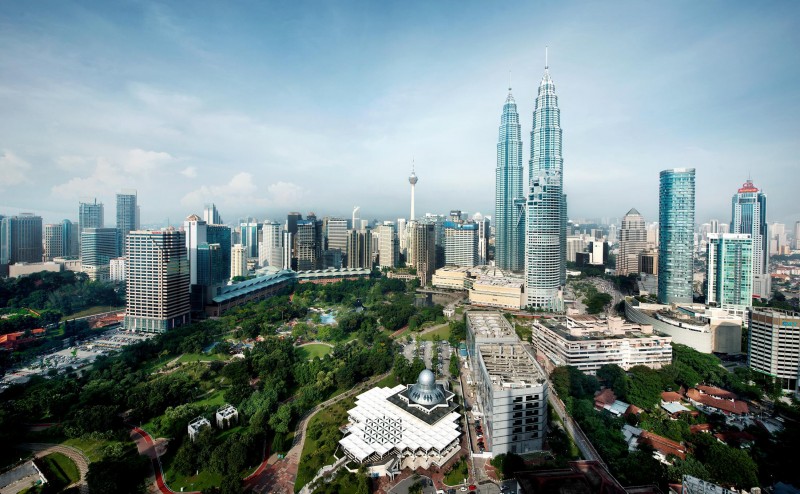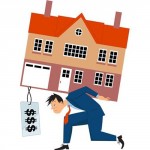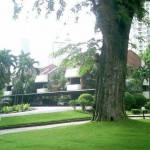The slowdown in the property market has affected the prices of luxury condominiums, particularly those in the Kuala Lumpur City Centre (KLCC).
“Sales value of units within the KLCC area has generally dropped. Some areas have since adjusted,” said DTZ Nawawi Tie Leung managing director Eddy Wong.
Before the market slowdown, property developers with projects in the KLCC area have “enjoyed a good two to three years”, he noted.
“However, despite the slowdown, I don’t see any developers facing distress. To manage the situation, we see them adjusting their product mix according to the market.”
Luxury condo rents fell since oil and gas companies began downsizing their businesses within the country.
“We see many expatriates moving back to their countries and there have been more vacant units. Because of this, it’s been a bit harder for owners to sell or rent their properties,” said Wong.
“There were a lot of foreign investors that bought properties two or three years ago and they’re finding it hard to sell now.”
The slowdown has also resulted into some luxury condos going “under the hammer”, albeit the situation is not critical.
“Some borrowers have trouble servicing their loans. But the situation isn’t dire, to the point that there have been fire sales. Nothing of serious concern,” he said.
Rahim & Co executive chairman Tan Sri Abdul Rahim Abdul Rahman noted that luxury condominium market became a highly sought-after segment around 10 years ago as Malaysians became more discerning, particularly with the development of KLCC as a prime destination for buyers and investors.
Projects were launched within KLCC from 2004 and completed in 2007. The bulk of these projects were large units measuring 2,500 sq ft and above, and appealed to families, mainly from the oil and gas sector.
“Developers started building world-class homes – and thus emerged a market for the high-end customers. People started getting used to paying for prices higher than RM5 million. This started to become the norm and it spurred developers to build more of the same,” said Abdul Rahim.
According to him, the steady demand from expatriate also spurred this phenomenon.
“So this trend carried on, and when there was a bubble, it led to an oversupply situation and the segment started to slow down. Eventually, prices dropped between three percent and five percent. In some places, it dropped by as much as 10 percent.”
The demand from expatriates eventually waned as the fall in oil prices affected the economy.
“There has been a downtrend in the luxury residential market and I think it will take two to three years to fully recover.”
Currently, luxury condominium prices range from RM1,000 psf to RM1,500 psf, said Abdul Rahim.
“But there are some developers that also claim to sell at RM2,000 psf.”
Chan Ai Cheng, general manager at SK Brothers, expects some downward adjustment in pricing for high rise units and more adjustments in rental rates.
“It has been a challenging year for the property market at all levels. Market confidence (resulting in a lot of wait-and-see and not to over commit in uncertain times) contributes to most of it, topped with the cooling measures that target high-end properties,” she said.
“As it is demand is weakening plus higher loan rejection rates of some 50 percent, developers and owners alike are feeling the pressure.”
Overall, the luxury condominium market is most affected by the cooling measures, economic uncertainties and market sentiments.
“Property, given its nature as a hedge against inflation and a medium to long term investment, these momentary adjustments should be viewed as such. Always keep in mind the basics of property ownership/ investment, which is worth revisiting.”
Axis REIT Managers Bhd head of investments Siva Shanker revealed that the high-end condominium segment is facing an oversupply situation.
“We expect this segment to consolidate. Sales above RM1 million will slow; people don’t know when the market will recover. The market below RM500,000 is hot right now,” said Siva, who is also the immediate past president of the Malaysian Institute of Estate Agents.
DTZ’s Eddy Wong expects the market in 2017 to be similar to this year.
“It will move sideways. I don’t see the market crashing. Some places will see volumes decreasing, others maybe even increasing slightly. It will be a mixed bag.”
Mangalesri Chandrasekaran, Editor at PropertyGuru, edited this story. To contact her about this or other stories email mangales@propertyguru.com.my




